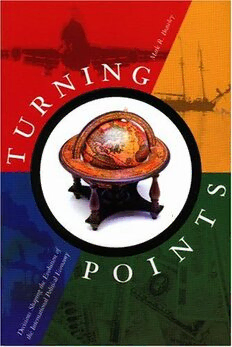
Turning points: decisions shaping the evolution of the international political economy PDF
01998·0.862 MB·English
Most books are stored in the elastic cloud where traffic is expensive. For this reason, we have a limit on daily download.
Preview Turning points: decisions shaping the evolution of the international political economy
Description:
'Turning Points' presents the theories and paradigms of international relations in the context of the issues of the international political economy (IPE); trade, investment, and monetary relations. Largely it does so by developing historical cases of pivotal events in the evolution of the IPE to illustrate the strengths and weaknesses of these theories. This focus on the substantive material of the IPE allows a shift beyond traditional debates to include newer paradigms such as Constructivism and Institutionalism. The result is a book that not only reveals and explains prominent arguments and debates, but also provides a grounding in the history and structure of the IPE. The first half of the book explains the main features of the IPE. This part develops and illustrates the ways in which political scientists elaborate and employ theories of international relations by classifying and examining the main levels of analysis, from characteristics of the international relations by classifying and examining the main levels of analysis, from characteristics of the international system, through those of nation states, to explanations of policy effected by officials. The second half examines important historical cases chosen both to illustrate theories and also to chart the overall patterns of change. Readers are thereby introduced to important theories and issues in international relations and to key historical episodes and significant scholarship.
See more
The list of books you might like
Most books are stored in the elastic cloud where traffic is expensive. For this reason, we have a limit on daily download.
